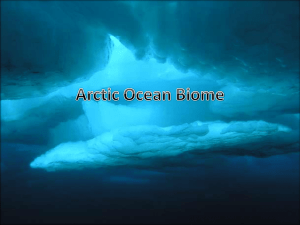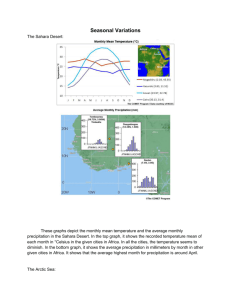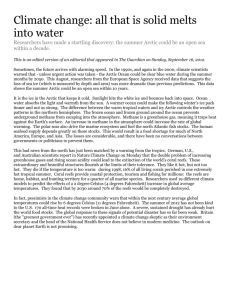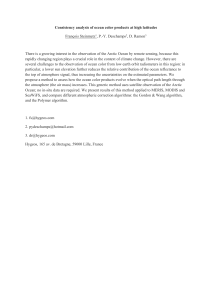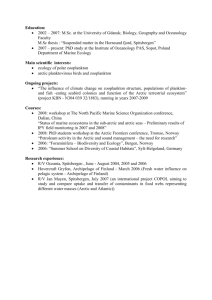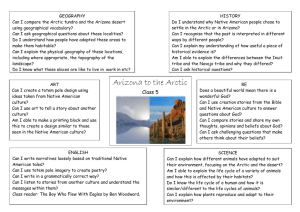Arctic Ocean Drilling: Risking Oil Spills, Human Life, and Wildlife
advertisement
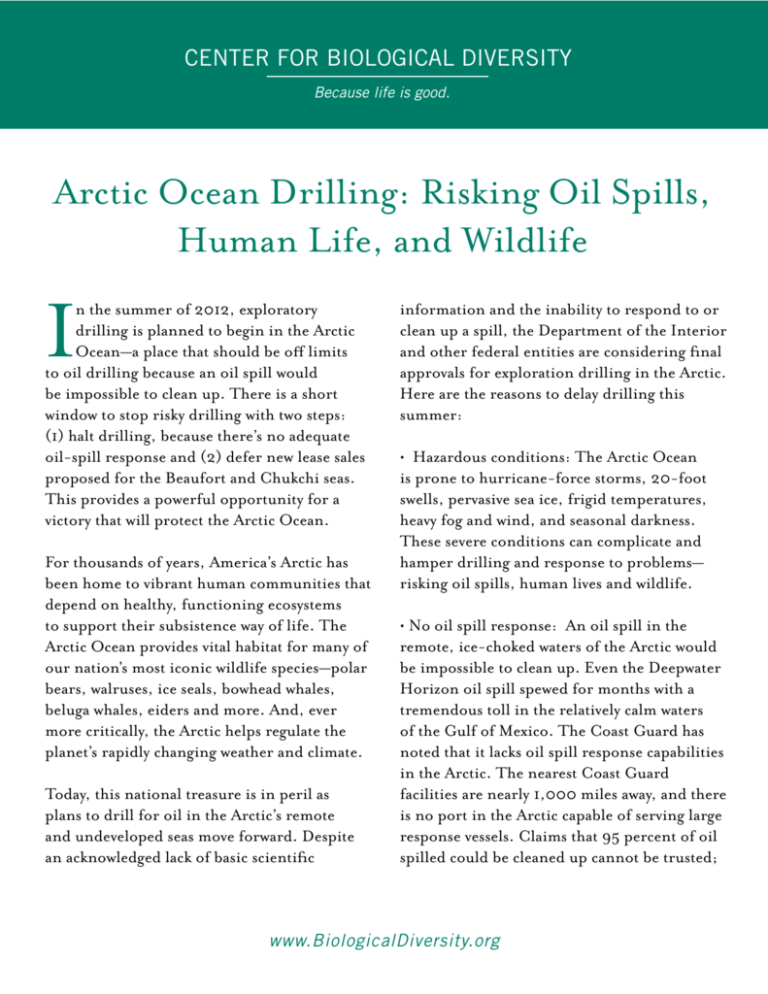
CENTER FOR BIOLOGICAL DIVERSITY Because life is good. Arctic Ocean Drilling: Risking Oil Spills, Human Life, and Wildlife I n the summer of 2012, exploratory drilling is planned to begin in the Arctic Ocean—a place that should be off limits to oil drilling because an oil spill would be impossible to clean up. There is a short window to stop risky drilling with two steps: (1) halt drilling, because there’s no adequate oil-spill response and (2) defer new lease sales proposed for the Beaufort and Chukchi seas. This provides a powerful opportunity for a victory that will protect the Arctic Ocean. For thousands of years, America’s Arctic has been home to vibrant human communities that depend on healthy, functioning ecosystems to support their subsistence way of life. The Arctic Ocean provides vital habitat for many of our nation’s most iconic wildlife species—polar bears, walruses, ice seals, bowhead whales, beluga whales, eiders and more. And, ever more critically, the Arctic helps regulate the planet’s rapidly changing weather and climate. Today, this national treasure is in peril as plans to drill for oil in the Arctic’s remote and undeveloped seas move forward. Despite an acknowledged lack of basic scientific information and the inability to respond to or clean up a spill, the Department of the Interior and other federal entities are considering final approvals for exploration drilling in the Arctic. Here are the reasons to delay drilling this summer: • Hazardous conditions: The Arctic Ocean is prone to hurricane-force storms, 20-foot swells, pervasive sea ice, frigid temperatures, heavy fog and wind, and seasonal darkness. These severe conditions can complicate and hamper drilling and response to problems— risking oil spills, human lives and wildlife. • No oil spill response: An oil spill in the remote, ice-choked waters of the Arctic would be impossible to clean up. Even the Deepwater Horizon oil spill spewed for months with a tremendous toll in the relatively calm waters of the Gulf of Mexico. The Coast Guard has noted that it lacks oil spill response capabilities in the Arctic. The nearest Coast Guard facilities are nearly 1,000 miles away, and there is no port in the Arctic capable of serving large response vessels. Claims that 95 percent of oil spilled could be cleaned up cannot be trusted; www.BiologicalDiversity.org indeed, only only 3 percent was cleaned up in the Gulf in 2010, and only 8 percent was cleaned up after the Exxon Valdez spill. • Sensitive wildlife: The Arctic is home to polar bears, walruses, and ice seals that are entirely dependant on sea ice for their survival. These animals are already threatened with extinction by climate change that’s melting away their habitat. Ocean drilling increases activities that will disturb sensitive wildlife. Additionally, the fossil fuels under the Arctic Ocean should be left untapped—as well as the massive amount of greenhouse gasses that it holds—as we pursue a clean energy future. Drilling in the Arctic Ocean promises to make it ever more difficult to return to atmospheric levels of carbon dioxide that scientists tell us are needed to prevent some of the worst consequences of global warming. We have an important opportunity right now to protect the Arctic environment. There is a broad coalition of environmental organizations and indigenous leaders who are opposed to Arctic Ocean drilling. The federal government must not allow drilling to proceed in the Beaufort and Chukchi seas. More information on Arctic oil development can be found on the Center for Biological Diversity’s website: www.BiologicalDiversity.org/ArcticOilDevelopment
